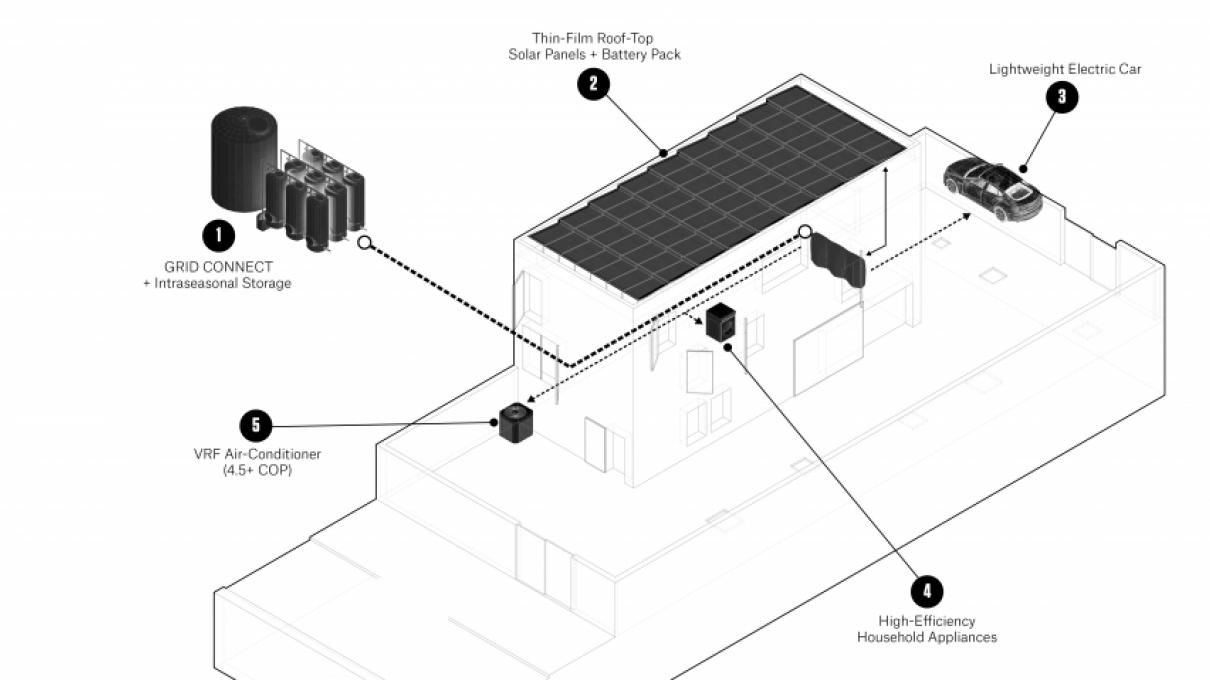Engaging UROPs in Urbanism

One of the hallmarks of a research institute is the capacity to bring multiple disciplines to bear on society's most pressing challenges. Over the past two years, the Norman B Leventhal Center for Advanced Urbanism (LCAU) has increasingly used the Undergraduate Research Opportunity Program (UROP) to help foster collaborations between departments, and to develop new research and design techniques and methods.
Undergraduate students are assigned to a research project, and work alongside faculty and research staff at the LCAU as they explore solutions to challenges ranging from climate change adaptation planning, to low-carbon neighborhood design, to urban growth boundary assessments. A key part of the center’s work in developing implementable solutions, is measuring the performance of various strategies whether they be based in new technology implementation, policy levers, zoning, or design of new urban typologies. The LCAU has turned to UROP’s to help develop cutting-edge computational models to help predict, optimize, and explore new urban systems.
Last summer, Jordan Browne, a mathematical economics major, helped build a surrogate model for residential energy modeling that provided a 2,000x speed improvement over EnergyPlus. This enabled thousands of design options to be explored in multiple contexts in minutes, not hours or days. In part inspired by his work at the center, Jordan took a year off to work on a solar-energy start-up. Jordan rejoined the center during his final year at MIT, where he developed a novel approach to estimating roof-top surface areas for regional solar-potential assessment using a chained machine learning approach. Meital Hoffman, an Urban Science and Planning with Computer Science major, has been working with researchers at the center to automate land-cover and land-use classification using satellite data. Her work is helping the center assess the long-term performance of urban growth boundaries. Over the past summer, Allison Serio, a computer science major and architecture minor, extended Jordan’s work by building an energy-grid model to study the future impact of electric-car adoption on solar-penetration rates. She will be continuing this work over the fall.
This fall the LCAU will build out its UROP program even further by bringing in students from the social sciences and design programs to help do foundational research for its next triennial theme on Equitable Resilience. Students in urban planning, architecture, history, philosophy, and political science are especially welcome to apply. Of course, the typical cadre of computer science, engineering, and mathematics majors are always welcome. The UROP research coordinator at the center, David Birge, says they are working on tailoring the program to better meet student’s individual goals. “We are cognizant that students come to us with specific objectives–often to investigate a specific problem or gain exposure to how we approach research at the LCAU. This fall we will continue to build out a research community at the LCAU that allow students to find their own unique contribution to solving societies biggest challenges."


